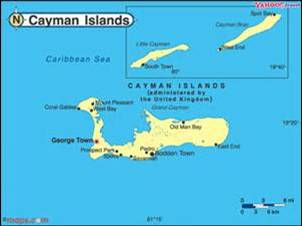Caymans propose new fund registration rules
James Bergstrom and partners, Ogier, Partner, Cayman Islands, 17 January 2020

The Government of the Cayman Islands has just published a Private Funds Bill and a proposal to amend the Mutual Funds Law (2019 Revision) as a result of pressure from the European Union and other international bodies. The idea is to align the Cayman Islands' regulatory regime for investment funds with those of other jurisdictions.
The Bill and the MFL amendment are expected to go before the Cayman Islands Legislative Assembly on 30 January and final amendments may be made then, before they become law. Everyone expects there to be a transition period for existing structures. In this article we explore the main features of these pieces of legislation in their present form.
Private Funds Bill
Who is to be affected?
The Bill applies to any Cayman-Island closed-ended fund. If such a fund falls into the category of a "private fund," the Bill proposes to force it to register with, and be regulated by, the Cayman Islands Monetary Authority (CIMA). The Bill does not suggest any changes for "mutual funds" such as open-ended hedge funds, which are going to continue being regulated by the Mutual Funds Law.
The definition of "private fund" captures any company, unit trust or partnership whose principal business is the offering and issuing to investors of its participating, non-redeemable investment interests, the purpose or effect of which is the pooling of investors' funds with the aim of spreading investment-related risks and enabling investors to receive profits or gains from such vehicle's investment activity, where (a) the holders of investment interests do not have day-to-day control over the vehicle's investment activities and (b) the investments are managed as a whole by or on behalf of the fund operator for reward in line with the vehicle's assets, profits or gains.
Vehicles that only issue debt or prescribed alternative financial instruments are not deemed to be issuing investment interests and so do not fall into the ambit of the Bill. The Bill also expressly seeks to exempt "non-fund arrangements" including securitisation special purpose vehicles (SPVs), joint ventures, proprietary vehicles, holding vehicles, preferred equity financing vehicles, sovereign wealth funds and single family offices.
"Funds" which are established for only one investor ought to be outside the scope of "private funds" in view of the "pooling of investor funds" requirement.
When should registration occur?
The Bill expressly seeks to permit a private fund to sign agreements (which, according to our sources, include subscription agreements, side letters and a partnership agreement) with investors and accept capital commitments from investors for the purpose of making investments before submitting its application for registration to CIMA. If any investor is not a high-net-worth (HNW) or sophisticated investor, the private fund must submit an application for registration to CIMA within 21 days of its acceptance of capital commitments.
In all cases, a private fund ought to register with CIMA before accepting capital contributions from investors in respect of investments.
Should registration involve the sending of an offering document to CIMA?
The Bill does not propose a specific requirement to have an offering document as part of the private fund registration process. It wants "prescribed details" to be sent over; we shall only know what this entails when the Government issues separate regulations.
What operating requirements are to apply?
The Bill seeks to allow the regulator to know all about every private fund's core operations and processes and to ensure that they are properly accounted for on paper. It aims to achieve this though rules that pertain to auditing, valuation, custody, cash monitoring and the identification of securities. These rules are consistent with most private funds' current procedures. Let us look at each set of rules in turn.
Audit. Audited financial statements, signed off by a Cayman-Islands auditor, must be submitted to CIMA within six months of a private fund's financial year end.
Valuation. Valuations of the assets of a private fund must be carried out at a frequency that is appropriate to the assets held by the private fund and, in any case, at least every year. To the extent that valuations are not performed by an appropriately qualified independent third party, the valuation function established by the manager or operator (e.g. the general partner) of the private fund must be independent from the portfolio management function or the potential conflicts of interest must be properly identified, managed, monitored and divulged to investors.
Custody. A custodian must be appointed to: (i) take into custody the custodial fund assets in segregated accounts; (ii) verify that the private fund holds title to any other fund assets; and (iii) keep a record of those other fund assets. A private fund need not appoint a custodian if it has notified CIMA and it is neither practical nor proportionate to do so, having regard to the nature of the private fund and the type of assets that it holds. In such circumstances, a private fund must appoint a person to carry out title verification. To the extent that this verification is not performed by an independent third party, the verification function established by the manager or operator of the private fund must be independent from the portfolio management function or the potential conflicts of interest must be properly identified, managed, monitored and divulged to investors.












